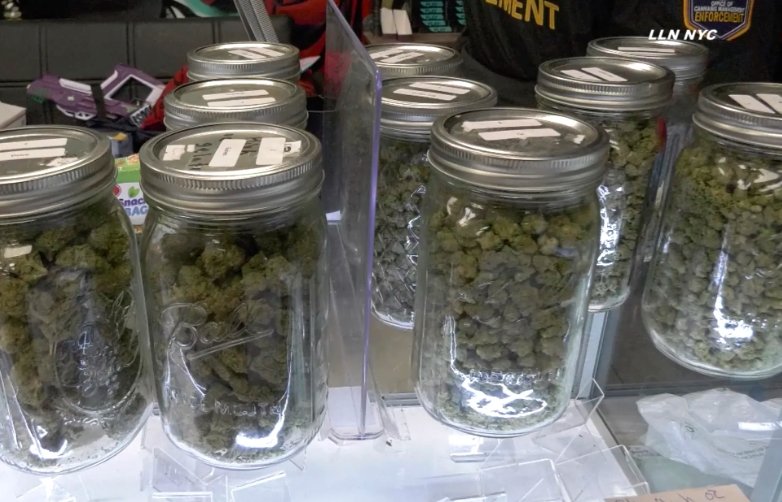In a bid to recover unpaid taxes from unlicensed and tax-delinquent cannabis businesses, California officials held a public auction last week, selling off personal property seized during law enforcement raids on 10 cannabis shops in Los Angeles. The auction, which was the first of its kind in the state, included items such as glass bongs, pipes, furniture, electronics, and even a snow cone machine.
A New Strategy to Crack Down on the Illicit Market
The auction was hosted by the California Department of Tax and Fee Administration (CDTFA) in partnership with the California Highway Patrol (CHP). According to the CDTFA, the 10 cannabis businesses that were raided owed more than $14.4 million in unpaid taxes to the state. Only one of them was a licensed business, but it was also raided for tax evasion.
“Seizing and auctioning property from cannabis businesses that evade the law is a tool to recover the taxes owed to the state,” CDTFA Director Nick Maduros said in a statement. He added that the CDTFA will continue to work with the CHP and other law enforcement agencies to enforce the state’s cannabis tax laws and regulations.
The auction marked the latest enforcement action by the state against the illicit cannabis market, which has been thriving despite the legalization of recreational cannabis in 2018. The state has been struggling to curb the unregulated industry, which poses a threat to public health, safety, and the environment, as well as to the legal cannabis businesses that comply with the law.
A Variety of Items Up for Grabs
The items that were auctioned off were grouped into lots, and potential buyers had to bid on the entire lot if they were interested in a specific item. The items were sold “as is” to the highest bidder, and the proceeds from the auction will apply toward the liabilities owed by each of the 10 debtors, the CDTFA said.

Some of the items that were up for grabs were typical to modern cannabis dispensaries, such as glass bongs, pipes, cannabis manufacturing equipment, money counters, and crowd-control poles. However, there were also some less expected items, such as a La-Z-Boy recliner, a snow cone machine, framed art, and miscellaneous office supplies.
The auction attracted a lot of attention from the public, as well as from the media. Some people were curious to see what kind of items were seized from the cannabis shops, while others were looking for a bargain or a novelty. However, not everyone was happy with the auction, as some cannabis advocates criticized the state for wasting resources and criminalizing cannabis users and businesses.
A Long Way to Go for a Regulated Cannabis Industry
The auction was a rare event in California, as it was the first time that the state publicly auctioned off personal property that was seized from a cannabis business. Previously, the state had only auctioned off commercial property that was recovered from similar seizures in Whittier and Compton.
However, the auction was not the only enforcement action that the state has taken against the illicit cannabis market. The Unified Cannabis Enforcement Taskforce, which was established in 2019, said that it had seized about 190,000 pounds of illicit cannabis, valued at nearly $312 million, during its first calendar year of operation. Additionally, a Humboldt County cannabis cultivator agreed earlier this month to pay $750,000 to the state over environmental violations, promising to also take restorative measures as part of the court-approved agreement.
Despite these efforts, the state still has a long way to go to achieve a regulated and compliant cannabis industry. According to a recent report by the United Cannabis Business Association, there are more than 2,800 unlicensed cannabis dispensaries and delivery services operating in California, outnumbering the licensed ones by three to one. The report also estimated that the state is losing about $1.2 billion in tax revenue annually due to the illicit market.
The state has been trying to address some of the challenges and barriers that hinder the transition of the cannabis businesses from the illicit to the legal market, such as high taxes, lack of access to banking, and local bans on cannabis activities. However, it remains to be seen whether these measures will be enough to curb the illicit market and foster a fair and competitive cannabis industry in California.



